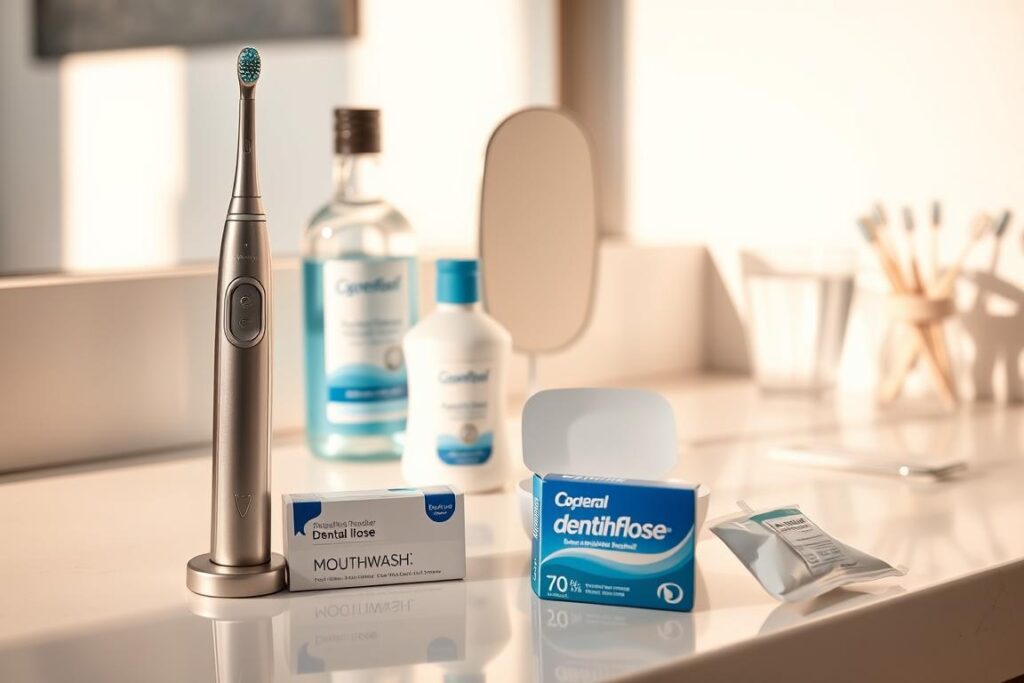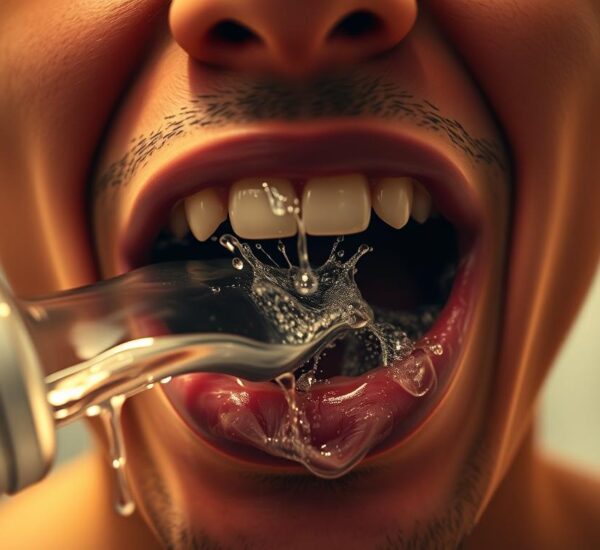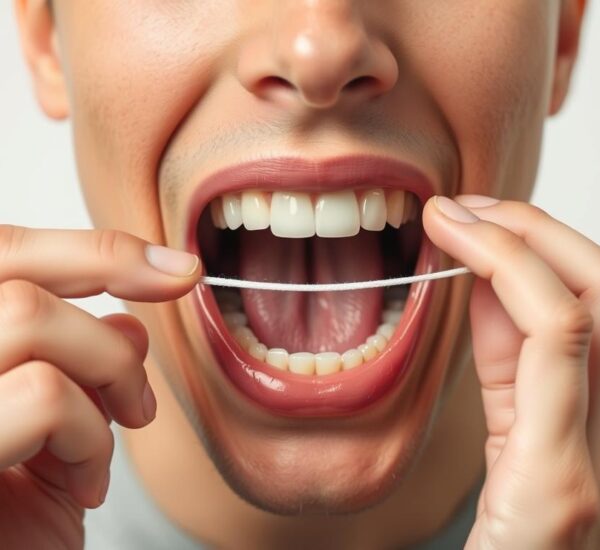Keeping our smile healthy is key to our overall well-being. Dr. Rena D’Souza, Director of the NIDCR, says good oral health lets us enjoy life, speak clearly, and eat nutritious foods.
By following simple hygiene habits, like brushing and flossing regularly, we can keep our teeth healthy for life. This not only makes us feel more confident but also improves our quality of life.
Key Takeaways
- Good hygiene habits are essential for a healthy smile.
- Regular dental care prevents long-term damage.
- Proper oral hygiene enhances overall well-being.
- Simple practices like brushing and flossing are key.
- A healthy smile boosts confidence and quality of life.
Understanding the Importance of Oral Health
Oral health is key to our daily lives, impacting our smiles and overall health. It’s vital for avoiding dental problems and keeping our smiles bright. The Cleveland Clinic stresses the importance of oral hygiene for healthy teeth and gums. This includes brushing, flossing, and regular dental visits.
What is Oral Health?
Oral health covers our mouth’s health, including teeth, gums, and tissues. It’s about preventative dentistry to keep teeth and gums healthy. Good oral hygiene means brushing, flossing, and dental check-ups to prevent tooth decay and gum disease.
Why Oral Health Matters
Oral health is important for our quality of life. Poor oral health can cause pain, discomfort, and eating and speaking problems. It’s also linked to various systemic diseases.
Connection to Overall Health
Oral health is closely tied to our overall health. Research shows a link between oral hygiene and heart health. Gum disease may raise heart disease risk. Diabetes and oral health are also connected, with diabetes affecting gum and tooth health.
| Systemic Disease | Connection to Oral Health |
|---|---|
| Heart Disease | Gum disease may increase the risk of heart disease. |
| Diabetes | Diabetes can affect gum health, and gum disease can impact diabetes management. |
| Respiratory Infections | Bacteria from gum disease can be aspirated into the lungs, potentially causing infections. |
Daily Oral Hygiene Practices
Keeping our teeth and gums healthy starts with daily habits. Simple routines can greatly reduce dental problems. Brushing, flossing, and mouthwash are key to a healthy smile.
Brushing Techniques for Optimal Results
Brushing is the simplest way to care for our teeth. The National Institute of Dental and Craniofacial Research (NIDCR) offers tips. Use fluoride toothpaste, brush at an angle, and use small circles. This removes plaque and stops tooth decay.
The Role of Flossing
Flossing is vital for our oral health. It cleans between teeth and under the gumline, where brushes can’t reach. Daily flossing keeps gums healthy and prevents gum disease.
Using Mouthwash Effectively
Mouthwash adds to our oral care. It kills bacteria that cause gum disease and bad breath. Choose a mouthwash with the American Dental Association (ADA) Seal of Acceptance for safety and effectiveness.
| Oral Hygiene Practice | Primary Function | Benefits |
|---|---|---|
| Brushing | Removes plaque and food particles from the surface of teeth | Prevents tooth decay, maintains clean teeth |
| Flossing | Removes food particles and plaque from between teeth and under the gumline | Prevents gum disease, reduces risk of interdental cavities |
| Mouthwash | Kills bacteria that cause gum disease and bad breath | Freshens breath, helps prevent gum disease |
By sticking to these daily habits, we keep our smile healthy. Consistency and thoroughness are key to good oral care.
Choosing the Right Dental Products
The right dental products are key to our oral hygiene habits. With so many choices, picking the best can be tough. But, making smart choices is vital for our oral health.

Toothpaste Selection Tips
Choosing the right toothpaste is important for dental care. Look for the American Dental Association (ADA) Seal of Acceptance. It shows the product is safe and works well. Also, think about what you need, like sensitivity or tartar control.
- For sensitive teeth, choose a toothpaste designed for sensitivity.
- If you’re prone to cavities, consider a toothpaste with fluoride.
- For gum health, select a toothpaste that helps reduce plaque and gingivitis.
The Best Types of Toothbrushes
The type of toothbrush matters for oral hygiene habits. Both manual and electric toothbrushes work well. But, electric ones are better at removing plaque and reducing gingivitis. Think about the bristle type and size. Soft-bristled toothbrushes are best because they’re gentle on gums.
Importance of Fluoride
Fluoride is key in preventing tooth decay and keeping oral health good. It makes teeth stronger against acid attacks from plaque bacteria and sugars. Using fluoride toothpaste and drinking fluoridated water helps prevent cavities.
By picking the right dental products and knowing their benefits, we can improve our oral health. This makes our dental care routine better.
Keeping Your Dental Visits Regular
Preventative dentistry begins with regular dental visits. These visits are key for good oral hygiene and dental health. They help catch and treat problems early, stopping bigger issues later.
How Often Should You Visit the Dentist?
How often you should see the dentist varies. The Cleveland Clinic suggests regular dental exams and cleanings. Most people should go every six months for a checkup and cleaning. But, your dentist might say you need to go more often based on your teeth and gums.
What to Expect During a Dental Checkup
At a dental checkup, your dentist will look at your teeth and gums. They check for decay, gum disease, and other issues. They also clean your teeth to remove plaque and tartar.
Your dentist might also give tips on better oral hygiene. Regular dental visits are key to a healthy smile. Knowing what happens at a checkup helps you take better care of your teeth.
Managing Common Oral Health Issues
Oral health problems like sensitivity, gum disease, and tooth decay are common. But, there are ways to manage them well. Keeping up with mouth care and oral wellness is key for a healthy smile. We’ll look at how to tackle these issues and stop them from getting worse.
How to Deal with Sensitivity
Tooth sensitivity can be quite uncomfortable. It happens when our enamel wears down, exposing the dentin. To handle sensitivity, use toothpaste made for sensitive teeth. Also, avoid very hot or cold foods and drinks.
Recognizing Signs of Gum Disease
Gum disease, or periodontal disease, affects our gums and tooth support. Early signs include bleeding gums, redness, and swelling. To stop gum disease, practice good teeth cleaning habits like regular brushing and flossing.
Tooth Decay: Prevention and Treatment
Tooth decay comes from bacteria that damage our enamel. To prevent it, brush with fluoride toothpaste, floss, and limit sugary snacks. If you get tooth decay, treatments range from fillings to root canals, based on the severity.
| Oral Health Issue | Causes | Symptoms | Prevention/Treatment |
|---|---|---|---|
| Tooth Sensitivity | Worn enamel, gum recession | Pain when consuming hot/cold foods | Toothpaste for sensitive teeth, avoid extreme temperatures |
| Gum Disease | Poor oral hygiene, plaque buildup | Bleeding gums, redness, swelling | Regular brushing, flossing, dental checkups |
| Tooth Decay | Bacteria producing acid, poor oral hygiene | Toothache, sensitivity, visible cavities | Fluoride toothpaste, limit sugary snacks, dental fillings |
Understanding and managing common oral health issues helps keep our smile healthy and happy. Regular dental visits and good oral hygiene are essential for prevention and treatment.
Nutrition and Oral Health Connection
Eating the right foods can greatly affect our oral hygiene habits. A diet full of essential nutrients keeps teeth and gums healthy. But, a bad diet can cause many oral health problems.
The link between nutrition and oral health is clear. Foods high in sugar and acid can harm teeth. Yet, a balanced diet with whole foods boosts oral health.
Foods That Promote Healthy Teeth
Adding specific foods to your diet can help keep teeth healthy. These include:
- Crunchy fruits and veggies like apples and carrots, which naturally clean teeth.
- Dairy products like milk and cheese, which are full of calcium and strengthen teeth.
- Leafy greens like spinach, packed with vitamins and minerals.
- Nuts and seeds, which are rich in calcium and vitamins.

Drinks to Avoid for Better Oral Health
Some drinks can harm our oral health, just like some foods can help. It’s best to limit or avoid:
- Sugary drinks like soda and sports drinks, which can cause tooth decay.
- Acidic drinks like citrus juices and energy drinks, which can wear down tooth enamel.
- Alcohol, which can dry out the mouth and cause other oral health problems.
Choosing water and milk helps keep hygiene habits good and supports dental care.
By choosing wisely what we eat and drink, we can greatly improve our oral health. This keeps our smile healthy and beautiful.
Tips for Maintaining Fresh Breath
Keeping our breath fresh is key for feeling confident and healthy. Fresh breath shows we care about our oral health. Good oral hygiene is the best way to keep our breath smelling good.
Causes of Bad Breath
Bad breath, or halitosis, comes from many sources. Poor oral care, certain foods, and health problems can cause it. Not brushing and flossing lets bacteria build up, leading to bad breath.
Foods like garlic and onions, and drinks like coffee and alcohol, can also make our breath bad. Health issues like gum disease, dry mouth, and stomach problems can also lead to bad breath. So, taking care of our mouth and body is important.
Simple Remedies to Freshen Breath
There are easy ways to keep our breath fresh. Brushing and flossing often is the best way to stop bad breath. Using a tongue scraper can also help get rid of bacteria.
Adding mouthwash to our daily routine can also help fight bad breath. Here are some more tips:
- Drink lots of water to keep your mouth moist.
- Stay away from foods and drinks that make breath bad.
- Chewing sugar-free gum can help make saliva, which cleanses your mouth.
Special Considerations for Children’s Oral Health
As parents, we have a big role in our kids’ oral health. Teaching them good oral hygiene early on is key. This helps prevent many oral health problems later on.
Establishing Good Habits Early
It’s important to teach kids to brush their teeth twice a day with fluoride toothpaste. They should also floss every day. Good hygiene habits stop tooth decay and gum disease. We should also get them to see the dentist often for check-ups and cleanings.
- Start brushing your child’s teeth as soon as the first tooth appears.
- Use a child-sized toothbrush and a small amount of fluoride toothpaste.
- Make brushing teeth a fun experience with songs or games.
Importance of Sealants and Fluoride
Dental sealants protect molars from decay. Fluoride makes teeth stronger against decay. Both are key for kids’ oral health.
Good hygiene, sealants, and fluoride together greatly lower oral health risks in kids. Regular dental visits catch and treat problems early.
The Impact of Lifestyle Choices on Oral Health
Our lifestyle choices greatly affect our oral health. The Oral Health Foundation says some habits help, while others harm our teeth. Making smart choices can lower the risk of oral health problems.
Smoking’s Detrimental Effects
Smoking is bad for our teeth and mouth. It can cause gum disease and tooth decay. It also increases the risk of oral cancer. Quitting smoking is key to good oral health.
The Risks of Excessive Alcohol Consumption
Drinking too much alcohol is bad for our teeth. It can cause dry mouth, tooth decay, and raise the risk of oral cancer. Drinking less is important for our dental health and overall health.
Being aware of our lifestyle choices and adopting healthy habits can improve our oral health. Good oral hygiene and smart lifestyle choices lead to a healthy, beautiful smile.



